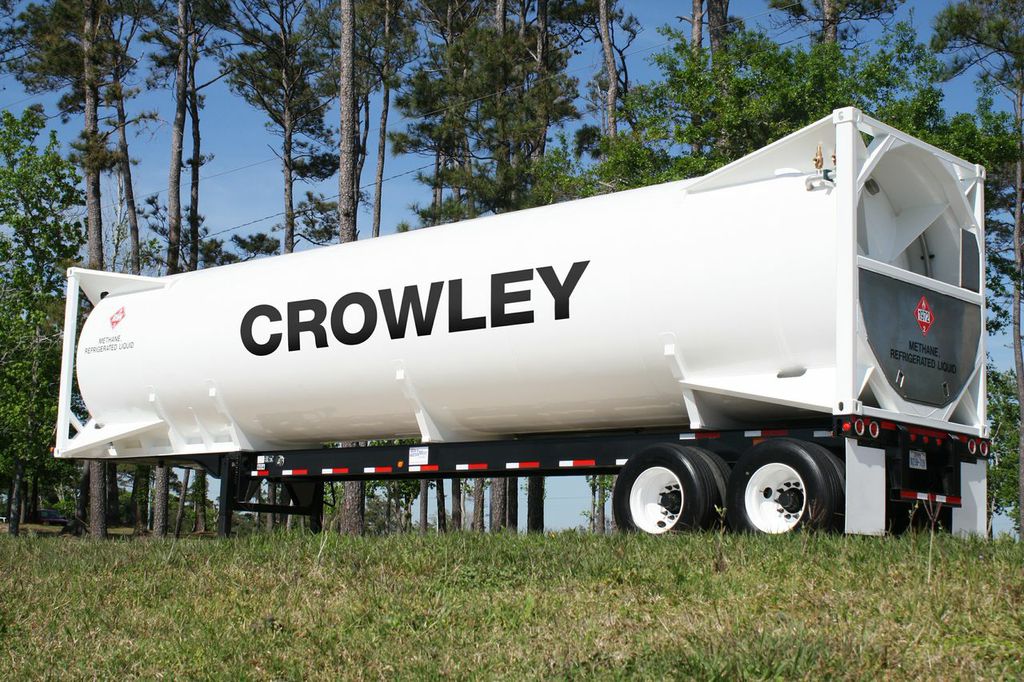he licensing permits Crowley to export roughly the equivalent of 480,000 gallons of LNG per day via ISO tanks to Non-Free Trade Agreement (NFTA) countries in the Caribbean, Central and South America. Photo courtesy Crowley Maritime Corporation
The U.S. Energy Department announced today that it issued the final authorization for two projects to export domestically produced liquified natural gas to countries that do not have a Free Trade Agreement (FTA) with the United States.
The final authorization for LNG exports was issued to Cameron LNG, LLC and Carib Energy, LLC from their facilities in Louisiana and Florida, respectively.
According to the Department of Energy statement, the Cameron LNG Terminal in Cameron Parish, Louisiana is authorized to export LNG up to the equivalent of 1.7 billion standard cubic feet per day (Bcf/d) of natural gas for a period of 20 years. Meanwhile Carib Energy, which is a subsidiary of Jacksonville-based Crowley Maritime Corp., is authorized to export up to the equivalent of 0.04 Bcf/d of LNG, or 14.6 billion of cubic feet per year, for a period of 20 years from the proposed liquefaction facility in Martin County, Florida to countries in the Caribbean, Central and South America. The permit requires Carib Energy to transport the natural gas via approved 10,700 gallon ISO LNG containers, according to a statement from Crowley.
“The challenge for any company in the business of moving LNG in ISO tanks is the flange-to-flange logistics of inland, ocean and island movements in a timely manner to keep the flow of LNG constant to the customer,” said Crowley Vice President Greg Buffington. “Crowley not only has the expertise but also the available assets to make this a successful business, while presenting savings and a greener energy alternative for customers around the world.”
The authorizations come following a recent procedural change to act on applications to export LNG from the lower 48 states only after completion of the review required by the National Environmental Policy Act (NEPA), suspending its practice of issuing conditional authorizations.
Federal law generally requires approval of natural gas exports to countries that have an FTA with the United States. For countries that do not have an FTA with the United States, law requires the Department of Energy to grant export authorizations unless it finds that the proposed exports “will not be consistent with the public interest.”
The growth in the development of U.S. natural gas resources is having a transformative impact on the U.S. energy landscape, and the increase in domestic natural gas production is expected to continue. The Energy Information Administration is forecasting a record production rate of 74.56 Bcf/d in 2014, according to the Department of Energy.
The Department says it will continue to act on LNG export applications according to the new procedures.

 Join The Club
Join The Club











